Year 3 to 5 school guide: How to deal with playground dramas and bullying
Mean girls, fights between friends and online bullying can all start in primary school. Here’s how to help your child navigate this tricky time.
Education
Don't miss out on the headlines from Education. Followed categories will be added to My News.
Mean girls, fights between friends and online bullying can all start in primary school.
By Year 3 parents will begin to hear a lot more complaints from their children about social issues, including friendship dramas and kids feeling left out of groups or activities.
Kids First Children’s Services Founder Sonja Walker said by mid way through primary school children have got the conventions of the playground and classroom down pat and are familiar with their peers.
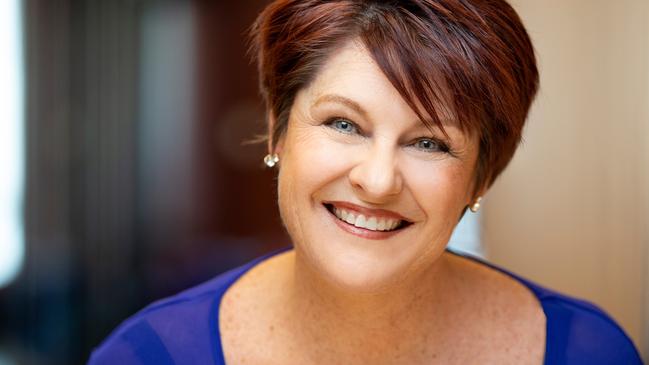
“This is the time when cliques and secret clubs can form, especially among the girls,” she said.
“The more socially assertive may start to let others know who is in and who is out.”
The Quirky Kid Clinic CEO and child psychologist Kimberley O’Brien said some girls can have difficulty sharing friends.
“Cliques start to form even among parents and often they won’t want to offend the other mums by bringing up issues among their children,” she said.
“It can be really stressful.”
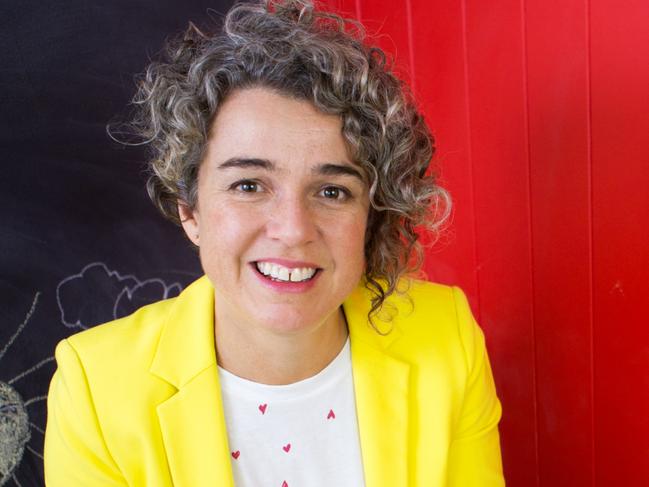
Dr O’Brien said asking a teacher to observe the group for a few weeks and help come up with a plan to resolve issues can be one way of approaching social problems.
Ms Walker, a former teacher, said the key was to help children build resilience and strategies for managing ‘big feelings’ like disappointment and developing tolerance and being caring.
She said parents can help by putting things in perspective and letting them try a few after school activities where they can make other friends.
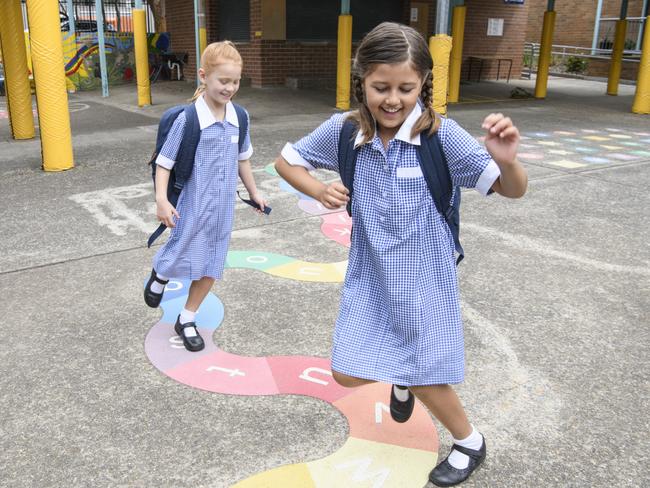
“Children don’t need a big group of friends, just two or three mates they can count on,” she said.
“You can help build up their skills to participate in other things and make like-minded friends.”
She said at this age “mean behaviour” can start online, especially on messaging apps.
She said children should not have their own devices until they are in Year 7, but some parents start to allow them in Year 5.
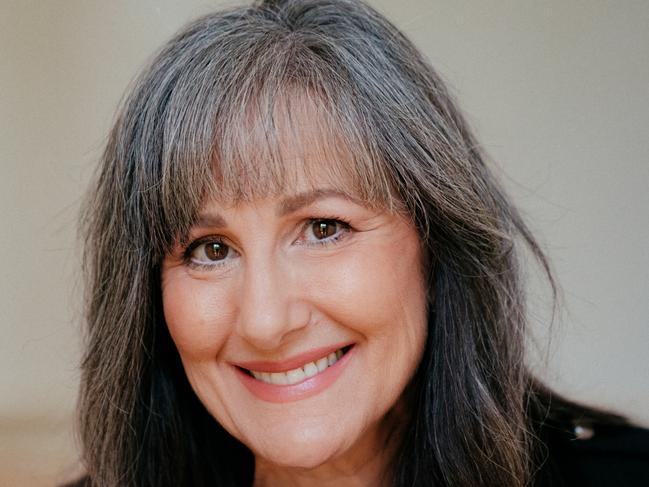
“Lots of parents like Facebook Messenger Kids as they can see the messages going backwards and forwards between children,” Ms Smith said.
However, she said children can still use the app to video message without their parents having a record of what was said and recommended families have strict rules in place for devices with cameras.
Meanwhile, Dr O’Brien highlighted that Years 3 to 5 can also be when learning difficulties become apparent.
She said concerns about a child’s progress should be discussed with the teacher to see whether a professional assessment was needed.
She said if there are issues it is important to get a diagnosis in place as soon as possible, so children can get extra funding and support.
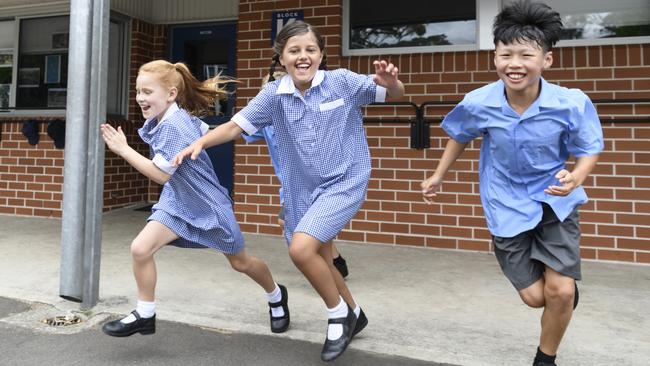
Q&A WITH THE EXPERTS
Everything was going well for your primary school kid – and then they hit Year 3. Want to know what to do if your child falls out with their friends? How can you help protect them from online stranger danger? And, what about if your child is not keeping up with their peers? Social affairs reporter Julie Cross, with help from The Quirky Kid Clinic child psychologist Kimberley O’Brien, Kids First Children’s Services Founder Sonja Walker and The Cyber Safety Lady, Leonie Smith, unpacks the essentials.
What are the problems to look out for?
Social issues begin to surface in this age group, particularly among girls. Some girls find it difficult to share friends and there can be arguments over who is the leader of a particular group.
This is also an age where bullying can start. Parents should observe and monitor the dynamics on play dates.
Cliques can start to form, even among the parents, and it can be difficult bringing up problems between children with another parent.
One option is to go to the school for help. Ask a teacher to monitor the group for a few weeks and report back what they are seeing and then get them to come up with an action plan.
My child has been ejected from their friendship group?
The key is to help your child build resilience and strategies for managing “big feelings”, such as disappointment. Help them to develop tolerance and be caring. Children don’t need large groups of friends, they need two or three mates they can count on. Encourage them to take on after school activities, where they can meet new friends.
My child is not keeping up with the other children?
This is a time when learning difficulties become more apparent. Is your child struggling with their handwriting, or are they behind in English or maths? Get advice from their teacher. Now is a good time to get a professional assessment to see if there are any learning difficulties because if there are problems, the sooner they get help the better and there is funding available to provide them with support. They may also be given more time or help with assignments or NAPLAN. It is best to get any issues sorted before Year 6.
Should they have their own devices at this age?
No. The recommended age for when a child should get a device with access to the internet is 13. However, a lot of parents give them devices in Yr 5, when they’re aged 10 or 11. Typically, the first device connected to the internet that kids gain access to, is the family iPad. If this happens make sure the parental controls are set for the youngest child. Preferably, set them up to play games on the main TV, rather than phones or iPads, so you can see what is happening. Don’t give them headsets – give yourself a fighting chance at knowing what is going on.
What about online predators?
Self produced child abuse material, where a child is asked to take a photograph of video of themselves, is a growing issue and young children are often targeted. It is your responsibility to set clear boundaries. Make sure they understand that they should never take nude photos of themselves or photos of their private parts.
Which apps are suitable?
Some apps deliberately look like they are suitable for children, but they’re not. Check commonsensemedia.org to see what apps are suitable for each age group. Set up a trust system. Tell your child they must ask before they download an app and work through it together.
Messaging apps are a big problem. Lots of parents like Facebook Messenger Kids as they can see the messages going backwards and forwards between children. However, they can’t see what’s happening on video chats. Make sure if they use the video function, that they ask first and that they know they can only do it in a certain part of the room, no going into the bathroom or bedroom and no walking around the house, as embarrassing moments can be beamed straight into other people’s homes.
What about online bullying?
Mean behaviour can often begin in this age group and it can happen through messenger apps. Talk to your child about how this behaviour can happen and go through scenarios and what to do, which at this age should be asking a parent for help.
What about gaming?
Some parents may be allowing kids to play online games – a few popular ones are Minecraft, Roblox, Animal Crossing, Animal Jam and Fortnite – but it is not a good idea, because predators could be online too. Minecraft Realms is one option as it is a private server offering the game, where only people you invite can join your world.
GO TO WEBSITES:




